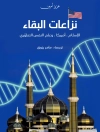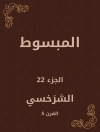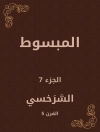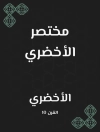The Prose Edda, specifically the Gylfaginning, offers an intricate tapestry of Norse mythology, revealing the creation of the world, the pantheon of gods, and the inevitable fate awaiting them through the lens of a curious king, Gylfi. Written in an elegant yet accessible prose, Sturluson’s narrative cleverly intertwines allegory and folklore, framing the mythical tales within engaging dialogues and vivid imagery. This literary work stands as a crucial cornerstone in understanding Norse culture and provides insights into the historical context of medieval Scandinavia, where oral traditions melded with emerging written forms. Snorri Sturluson, a 13th-century Icelandic historian, poet, and politician, was deeply immersed in the rich oral traditions of the Norse sagas. His keen interest in preserving these tales amidst the shifting societal landscapes of his time is evident in the Prose Edda. Sturluson’s background, marked by his experience as a chieftain and legal expert, allowed him to approach these mythological narratives with a sense of urgency, aiming to safeguard his culture’s heritage for future generations. Highly recommended for scholars and enthusiasts of mythology alike, Gylfaginning is an essential text that transcends its time. Sturluson’s vibrant storytelling and sharp wit will captivate readers, offering profound insights into the complexities of Norse beliefs and serving as a pivotal reference for understanding medieval European literature.
Sobre el autor
Snorri Sturluson (1179-1241) was an iconic figure of Medieval Icelandic literature, whose works are pivotal to Scandinavian cultural history. Born into a prominent family, Snorri was a historian, poet, and politician, becoming one of the most influential chieftains in Iceland. His literary contributions are monumental, particularly the Prose Edda, also known as Snorri’s Edda. This work is a comprehensive guide to Old Norse mythology and poetics, offering insights into pre-Christian Norse myths and the conceptions of the cosmos. The part known as ‘Gylfaginning’ translates to ‘The Fooling Of Gylfe’ and is a narrative that delves into the creation of the world and the saga of the gods according to Norse mythology. Scholarly consensus recognizes it as an invaluable source of both mythological and historical study, often cited when discussing Norse and Germanic lore (Clunies Ross, Margaret. ‘A History of Old Norse Poetry and Poetics.’ D.S. Brewer, 2005). Snorri’s literary style in the Edda is marked by a scholarly and methodical approach, interwoven with storytelling techniques that enliven the ancient myths for his contemporaneous audience and for posterity. His influence extends beyond literature; it shapes our understanding of Viking-age ethos and the skaldic tradition. Snorri also authored the ‘Heimskringla’, a collection of sagas about the Norwegian kings, further cementing his reputation as an essential figure in the study of Medieval Nordic literature and history (Bagge, Sverre. ‘Society and Politics in Snorri Sturluson’s Heimskringla.’ University of California Press, 1991).












